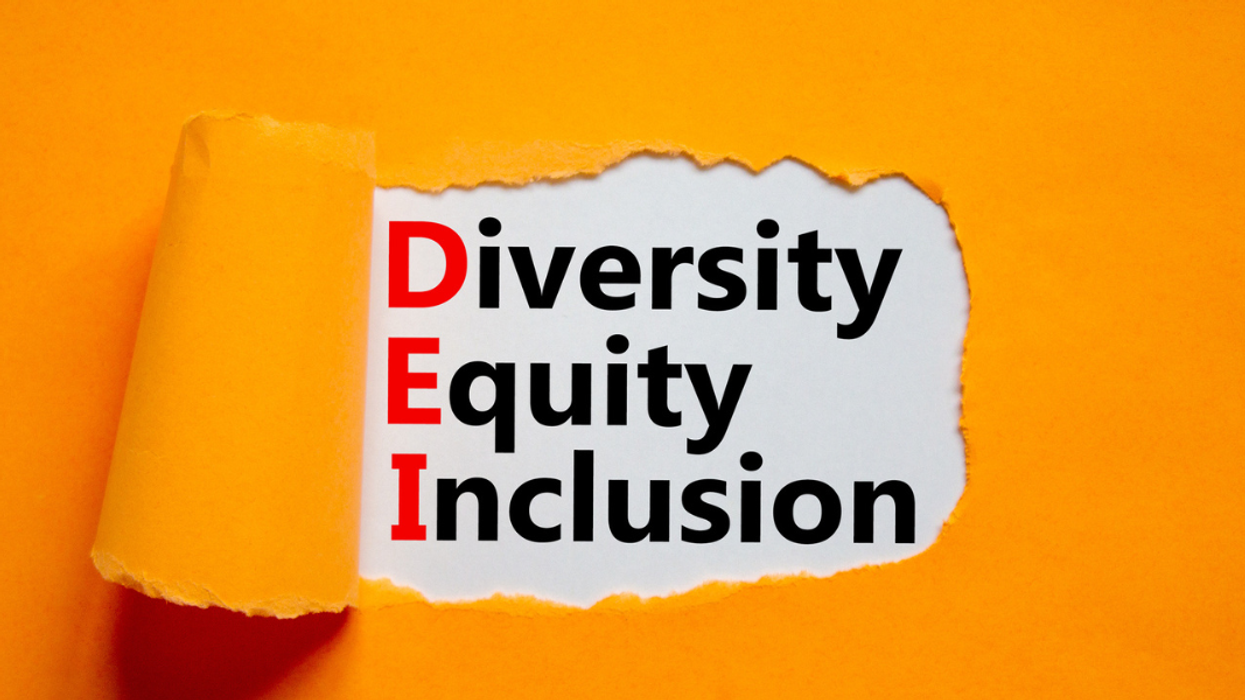The notion that we can "rethink" DEI reflects a dangerous oversimplification of deeply rooted historical and social issues. This intellectual approach, while well-intentioned, often needs to be revised and is potentially harmful to those who have experienced the real-world consequences of systemic inequities.
Meaningful change requires more than mere philosophical reconsideration or academic debate — it demands concrete action, institutional reform and a genuine willingness to confront uncomfortable truths. Actual progress necessitates critical thinking, practical applications and sustained commitment to transformative action at both individual and societal levels.
While the current discourse around "rethinking" diversity, equity and inclusion has become increasingly polarized — particularly after recent Supreme Court decisions and corporate policy shifts — it's crucial to distinguish between honest exploration and attempts to undermine DEI's fundamental validity. When approached with integrity and good faith, the process of refinement and critical examination strengthens rather than weakens DEI initiatives, much like how scientific theories become more robust through rigorous peer review and methodological scrutiny. For many academics, business leaders and social advocates, the call to "rethink" DEI is an innocuous, intellectually prudent and socially responsible enterprise grounded in recognizing that any significant institutional change requires periodic assessment and adaptation.
The key lies in recognizing that thoughtful reassessment of implementation strategies — such as evaluating the effectiveness of unconscious bias training, measuring the impact of mentorship programs or analyzing recruitment methodologies — differs fundamentally from efforts to dismantle or delegitimize DEI's core mission. This distinction becomes particularly vital when considering that DEI's ultimate goal is the fundamental transformation of our civic and democratic institutions — a transformation that requires ongoing dialogue, assessment and evolution, similar to other historic social movements like civil rights, women's suffrage or disability rights advocacy.
In practice, this means creating spaces where constructive criticism can coexist with a mutual commitment to equity, questioning ways and means without questioning the moral imperative of inclusion and where refinements to approach are seen not as admissions of failure but as signs of programmatic maturity and institutional wisdom.
As a scholar-practitioner, I recognize the complexity of realizing DEI. I respect the suppositions of colleagues that nuanced discussion transcends reflexive opposition and requires uncritical acceptance. It is important that discourse concerning equity and uneven distribution of opportunities is clear in definitions and goals: Are we pursuing equality of opportunity, addressing systemic barriers or working toward more comprehensive social transformation? Such questions deserve careful consideration, not as a means of undermining DEI, but as a way to strengthen its effectiveness and broaden its impact. Success in this endeavor requires moving beyond ad hominem arguments that dismiss perspectives based on the speaker's background — whether privileged or marginalized — and instead focusing on the substance of ideas and their potential to advance genuine equity.
Moreover, well-intentioned questioning or respectful ideological attacks that challenge my and other DEI advocates’ hermeneutical suspicion rather than engaging with the substance of equity itself reveal not only the weakness of their position but their deep discomfort with confronting America's moral debt to those marginalized, other-ed and disenfranchised. Until America fully confronts its moral character, history and present reality of systemic inequality — until we achieve a truly inclusive and pluralist democracy — DEI will remain relevant and essential.
The real question isn't whether we should "rethink" DEI but rather why we resist its basic premise: Everyone deserves equal opportunity and dignity in our civic and capitalistic life. For those facing systemic barriers and institutional exclusion, such intellectual exercises are not merely academic or legislative — they represent an existential threat to hard-won progress toward a more equitable society.
The path forward lies in grounding DEI advocacy in data, facts and demonstrated outcomes while remaining open to acknowledging its points of uplift and areas needing improvement. Rather than engaging in polemics, effective DEI work must counter misconceptions with evidence, appeal to shared values of fairness and respect, and maintain the courage to acknowledge when specific practices need adjustment. This approach recognizes deliberate building toward a representative, diverse and inclusive nation requires more than ideological certainty — it demands practical wisdom, empirical evidence and the ability to engage constructively with diverse perspectives while maintaining fidelity to core principles of equity and justice.
Johnson is a United Methodist pastor, the author of "Holding Up Your Corner: Talking About Race in Your Community" and program director for the Bridge Alliance, which houses The Fulcrum.




















Why does the Trump family always get a pass?